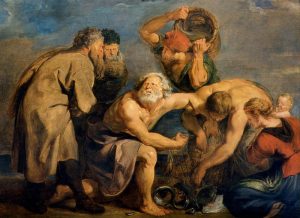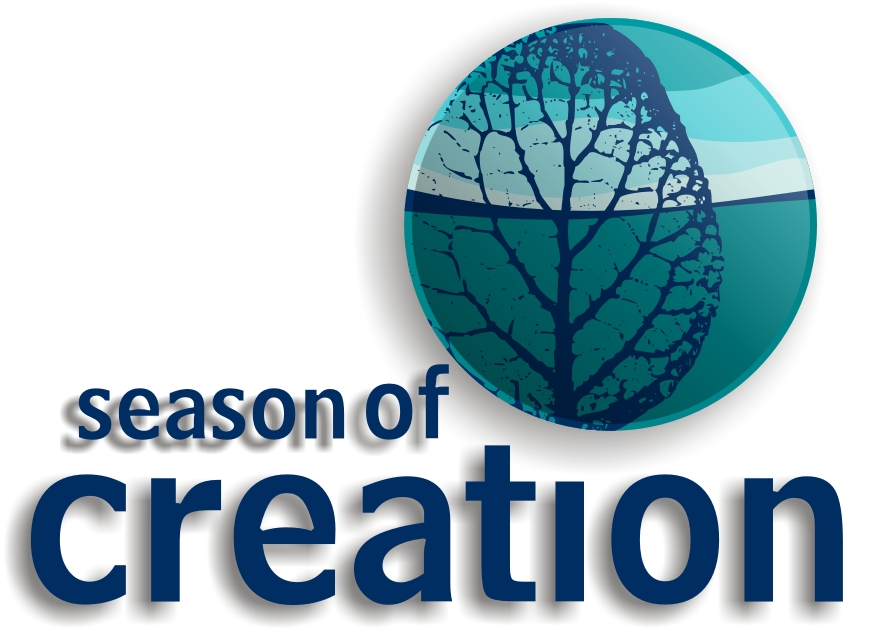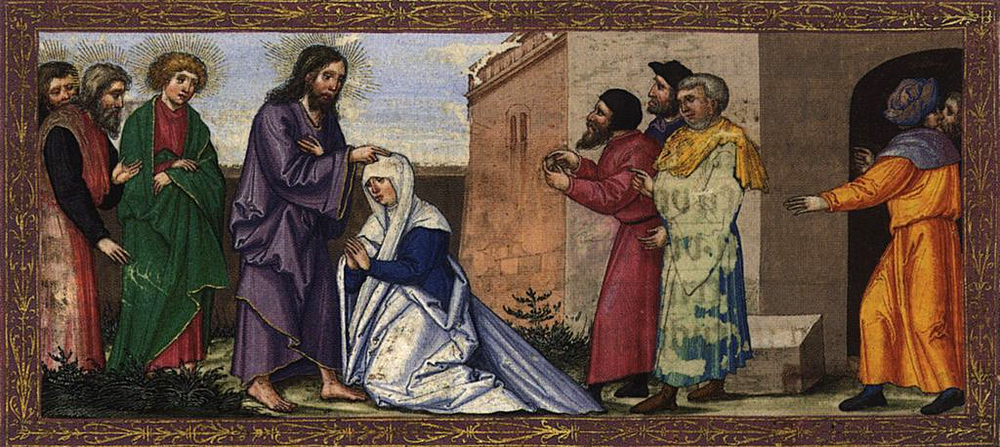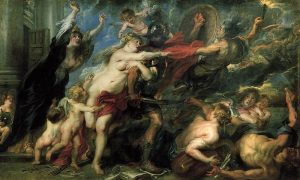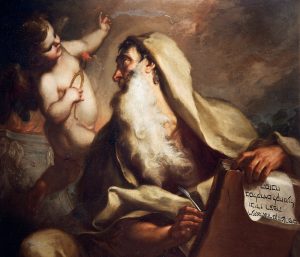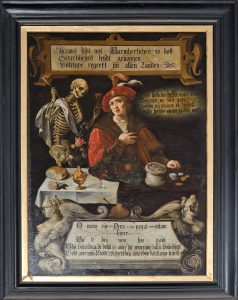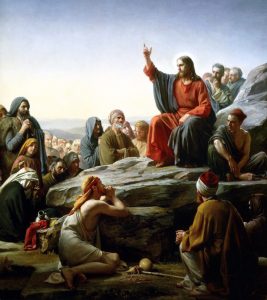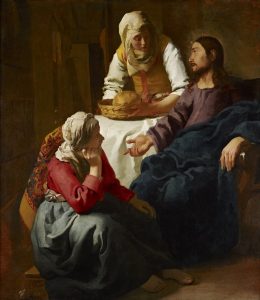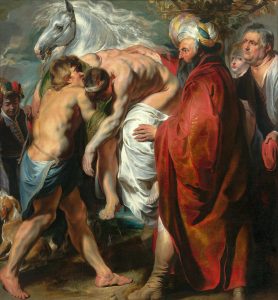Illuminations on the Lectionary readings for Aug. 31, 2025 (Pentecost 12C/Proper 17)
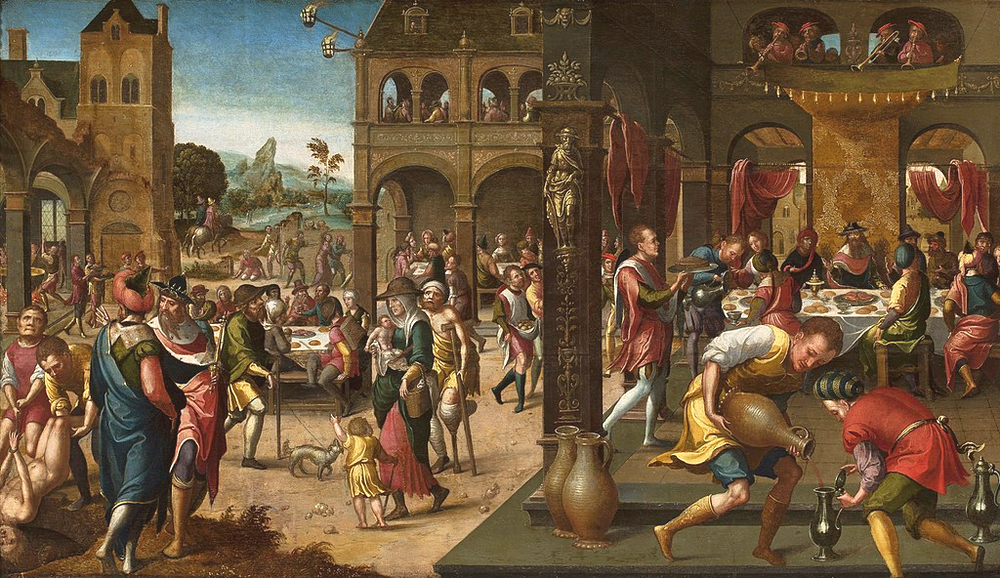
Parable of the Great Banquet (c.1525-1545), oil painting on panel by the Brunswick Monogrammist, an anonymous 16th-century Dutch painter. National Museum in Warsaw, Poland. (Click image to enlarge.)
First Reading (Track One): Jeremiah 2:4-13
When we place our own interest first, we lose sight of God’s way. Listen for this theme through Sunday’s readings. In our Track One first reading, we see Jeremiah, reassured that his youth is no bar to being a prophet, stepping into the role. Speaking God’s words aloud to humanity, he cries out in an anguished reverie, lamenting how the chosen people could have gone astray. Did they find some wrong in God that led them to waste their lives on worthless things? More in sorrow than in anger, it seems, God reflects that the people have forsaken the living water that they were given, building cracked cisterns instead that won’t hold what the people need to slake their spiritual thirst.
First Reading (Track Two): Sirach 10:12-18
Sirach, or The Wisdom of Jesus ben Sirach to give its full name, is one of the group of books known as Apocrypha that come at the end of the Hebrew Bible. It sums up Torah, God’s teaching, in the genre of wisdom literature: brisk, memorable suggestions of spiritual advice. Sunday’s Track Two first reading from Sirach follows the theme of the day’s readings: Pride leads to sin, and sin leads to no good end. In language that may remind us of the Song of Mary, the Magnificat, it warns that proud rulers will be overthrown, to be replaced by the lowly.
Alternate First Reading (Track Two): Proverbs 25:6-7
When Jesus offered his simple wisdom to banquet-goers that we hear in Sunday’s Gospel, perhaps he remembered this simple, ancient wisdom in Sunday’s alternate first reading from Proverbs: “It is better to be told, ‘Come up here,’ than to be put lower in the presence of a noble.” Both Luke and Matthew sum up this idea in almost identical words, “… all who exalt themselves will be humbled, and those who humble themselves will be exalted.”
Psalm (Track One): Psalm 81:1,10-16
The theme of this hymn seems to flow naturally from today’s Jeremiah reading. The Psalmist shouts in joy for God’s strength, and like Jeremiah, imagines God speaking of having brought the people out of slavery in Egypt. God saw to it that they were fed and protected, only to see their stubborn hearts turn to their own ways and ignore God’s commands. Imagining God’s voice, the Psalmist laments, “O that my people would listen to me, that Israel would walk in my ways!”
Psalm (Track Two): Psalm 112
Understood in the context of today’s lessons, the point in this Psalm is clear, and it clearly restates God’s covenant with the people: Follow God’s commandments and be blessed, and remember that the sum of that commandment is to be righteous and just, serve your neighbor, share your wealth, and provide for the poor. Secure in God, there is no need to live in fear.
Second Reading: Hebrews 13:1-8, 15-16
Our four-week visit with the letter to the Hebrews concludes Sunday in beautiful poetic words urging us to love one another as God loves us. We must remember to do good, to share with one another, and to show hospitality, remembering that the patriarch Abraham once hospitably yet unknowingly received visiting angels. These verses offer simple advice on living as God would have us live. Keep our lives free from the love of money, and be content with what we have, for God will never leave us or forsake us.
Gospel: Luke 14:1, 7-14
Like so many of Jesus’s parables, this one seems to have an obvious, simple message … and then a sudden turn makes us stop and think. Don’t assume that the seat of honor is saved for you, Jesus tells the Pharisees at a banquet table, or you’ll be embarrassed when the host directs you to move down. It’s more prudent to take a humble place, then bask in a happy glow as the host escorts you to a better place. But then we find, as we so often do with Jesus’ teachings, that there’s a deeper meaning: Next time, don’t host a banquet for wealthy, influential people at all. Rather, host one for hungry, thirsty, ill, and oppressed people. They can’t repay you as rich friends might, but your reward will be plentiful when God’s kingdom comes.

